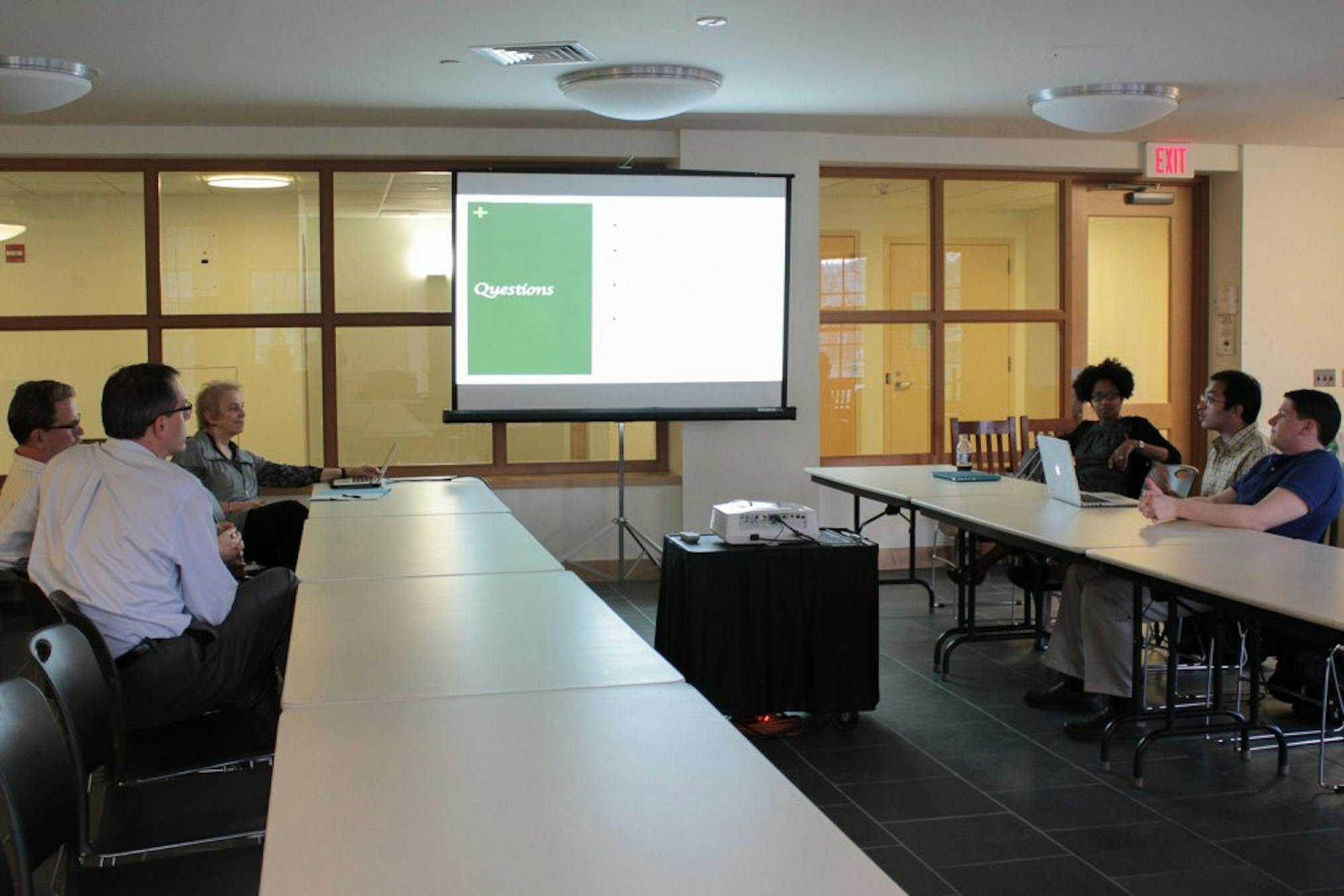About 30 people discussed current and future global experiences at the College and abroad at yesterday’s “Moving Dartmouth Forward” conversations. Topics covered at the session, the last in the series, included new foreign study programs in Ghana and South Africa.
Seven students attended the two sessions.
Associate dean of the faculty for international and interdisciplinary studies Lynn Higgins and associate provost for international initiatives and interim vice provost Lindsay Whaley asked the audience how the College could improve current off-campus programs and how to “internationalize” Dartmouth.
These initiatives will receive direct support from the President’s Office, Higgins said.
“The president has given a lot of international support to international activities,” she said in an interview. “We are not going to have a radical change among foreign study programs. However, we will definitely see an increase in the diversity of programs.”
Higgins said FSPs have been popular among the student body, noting that around 600 students opt to study abroad through Dartmouth programs every year. Yet participation numbers have steadily declined from the Class of 2009, of which 54 percent went on a College off-campus program, to the Class of 2013, of which only 43 percent did the same.
Whaley said students must take advantage of study abroad programs because they are among a liberal arts college’s most important offerings.
The College will “internationalize” itself by increasing the number of study abroad opportunities and enrolling more international students, Whaley said in an interview. He added that it is important to build social and academic bridges between international and American-born students.
Studying in a foreign country gives students the experience of being “the other” and gives them the skills to succeed in unfamiliar environments, Higgins said.
The Ghana FSP will start in fall 2015 and will be run through the African and African American Studies program, Higgins said. The South Africa FSP will be through the astronomy department, launching in around a year and a half, Higgins said.
“In South Africa, students will take advantage of the telescope owned by Dartmouth and engage more effectively with their academic interests and hopefully learn about South African culture, too,” Whaley said in an interview.
The curriculum review committee is currently discussing a new Native American studies FSP that would be based in New Mexico.
Whaley said that to gain approval, the site of a new study-abroad program and the selected partner institution must have English-taught courses, safety and academic excellence.
Whaley said he also hopes to increase the number of exchange programs between Dartmouth and other academic institutions.
The College is encouraging students to discuss their experiences at an annual global learning forum, Higgins said.
Executive director of off-campus programs John Tansey said in an interview that although the current language programs are beneficial, they often mark the end of international experience for students who are not majors in that language. Often, he said, there is no way for them to merge their major or interests with studying abroad.
He said students could benefit from programs that merge language and majors at the same time.
The College offers over 70 foreign study programs, language study abroad programs and exchange programs. Dartmouth ranked first among Ivy League schools and sixth overall in undergraduate participation in study abroad programs, according to the Institute of International Education’s 2011-12 “Open Doors” report.
Most of the funding for these initiatives will come from the $10 million donation by former New Jersey congressman Frank J. Guarini ’46, who helped create the Frank J. Guarini Institute for International Education, Higgins said.
The “campus conversations” series will resume in the fall.




